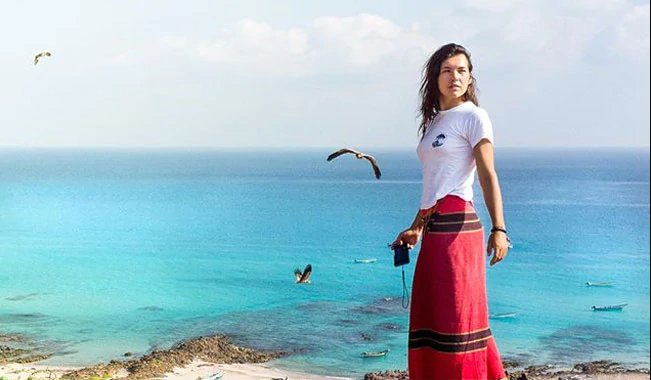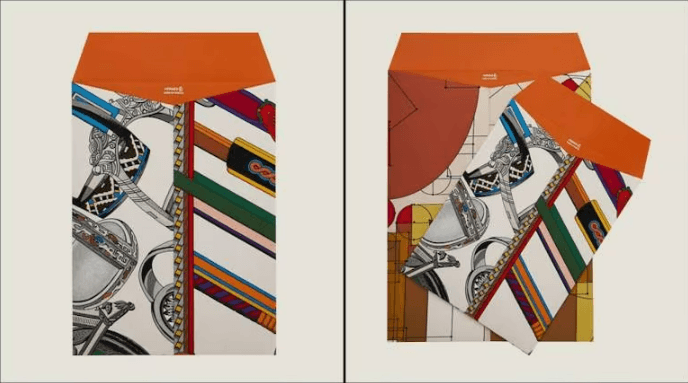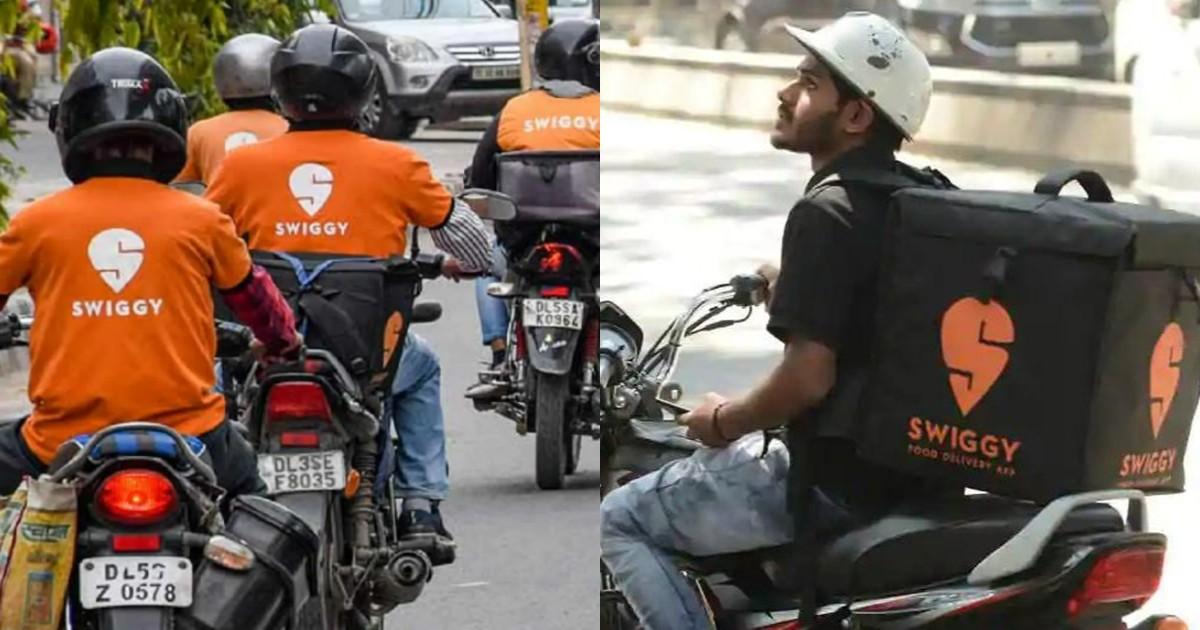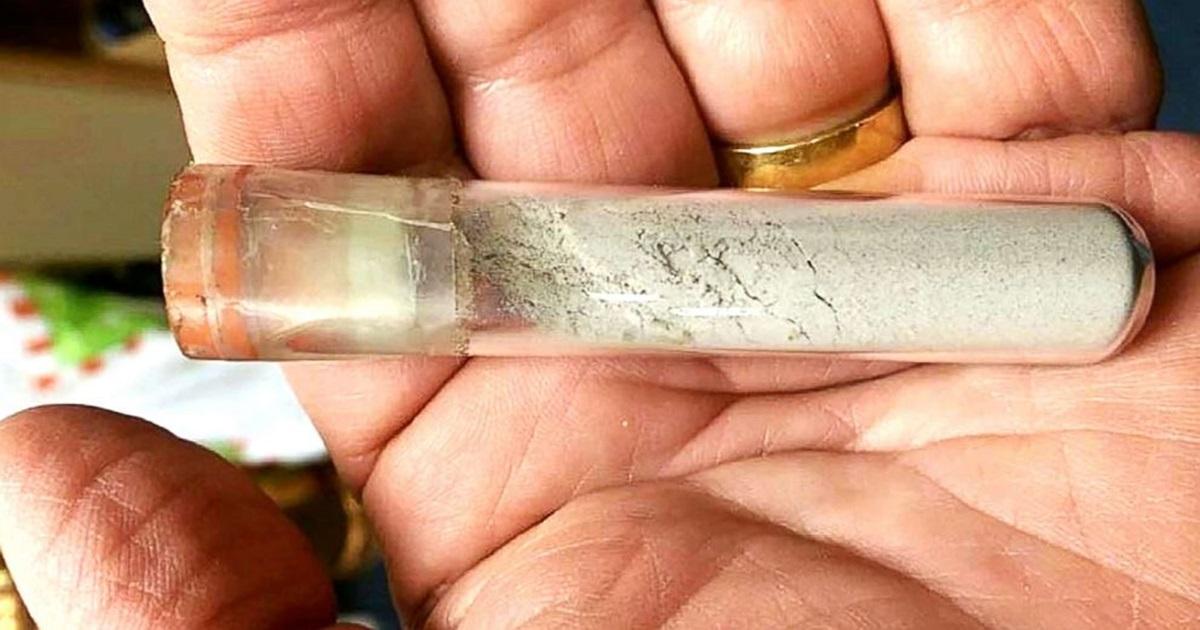कोरोना संकट के बीच पोलैंड की ब्लॉगर और YouTuber ईवा ज़ू बेक ‘सोकोट्रा आईलैंड’ में रह रही हैं. ईवा ने ख़ुद को इस आईलैंड पर आइसोलेट कर लिया है. प्राकृतिक सौंदर्य से भरपूर इस जगह को ‘Galapagos of the Indian Ocean’ के रूप में भी जाना जाता है.
ट्रैवल ब्लॉगर ईवा ज़ू बेक दुनिया के सबसे शांत आईलैंड में से एक सोकोट्रा में रहकर कोरोना महामारी के ख़त्म होने का इंतज़ार कर रही हैं. इस दौरान वो अपने इंस्टाग्राम फ़ॉलोवर्स के लिए यहां की हर अपडेट शेयर करती रहती हैं. इंस्टाग्राम पर उनके 4.5 लाख से अधिक फ़ॉलोवर्स हैं.
सीएनएन के अनुसार, ईवा 11 मार्च को साप्ताहिक कॉमर्शियल फ़्लाइट से सोकोट्रा पहुंची थी. इसके कुछ दिन बाद ही दुनिया के अधिकतर देशों ने कोरोनो वायरस के बढ़ते ख़तरे को देखते हुए लॉकडाउन घोषित कर दिया था.
View this post on Instagram
THE LANGUAGE WE ALL SPEAK, THE MOST AWKWARD AND BEAUTIFUL OF ALL. Every other evening, after dinner, I get visitors on my little verandah. They’re girls from my host family’s home. Together with their friends, they come to me in flowy dresses, with scarves wrapped around their waists and hijabs thrown loosely over their heads. After an exchange of greetings, one of them inevitably claps her hands and gets up, beckoning the others to join her. And that’s how our dance evenings begin. The girls know their Bollywood moves inside out, and they even sing along in (only slightly) broken Hindi. That’s an influence picked up from the TV, which runs on solar here. One moment, it’s all Aishwarya Rai, and the next, they’re singing an old Socotri song and rocking gently to its rhythm. When it’s my turn to dance, I usually try to get them to “teach” me and follow along. I’m the clumsiest dancer in the world, which is cause for much entertainment. Sometimes, we do solo dances though, where one of us dances, and all the other girls sit and watch. That’s when my secret weapon comes out: Britney Spears. With “Oops I Did It Again” playing on my Spotify, I start to feel like a little girl, and after that, it’s all giggles all over again. And then, back to Bollywood, in this prehistoric, tiny speck of land on the edge of the world. It’s a universal language, dance. It’s awkward, yes – but it becomes beautiful as soon as you embrace your own clumsiness, your natural movement. That’s how you begin to speak. And in that space between the dancer and the spectator, a language of universal understanding emerges. The epic photo by @rpljuscec
A post shared by Eva zu Beck ♡ Adventure Travel (@evazubeck) on May 13, 2020 at 6:49am PDT
15 मार्च को सोकोत्रा आईलैंड के अधिकारियों ने इसकी सीमाओं को बंद करने का फ़ैसला लिया. साथ ही सभी पर्यटकों को जल्द से जल्द आईलैंड छोड़ने के आदेश भी दे दिए.
View this post on Instagram
SOCOTRI HAS 100 WAYS TO DESCRIBE THE RAIN. Salem, an English language teacher I’ve just met, tells me that the island’s native tongue is in love with nature. Socotri mirrors its surroundings very closely and intimately, paying attention to the smallest details of nature. It’s in the poetry, it’s in the words: about the mountains, about the rain. As rich as it may be, though, Socotri doesn’t have native words for things that don’t exist on the island, like dogs. Salem adds, ‘when I teach my students English expressions, I tell them to say “it rains cats and goats” because we have no dogs on the island.’ I can’t help but smile at this poetic license. But Socotri is dying. Salem predicts it can live for another generation, and then it will be forgotten. Few people speak it full-time. Arabic is taught in schools, and Socotri is only spoken at home. The language has no written form, and most of its speakers prefer to code-switch with Arabic, making pure Socotri a rarity. ‘Only the people in the mountains speak real, pure Socotri’, says Salem. Several years ago, I was studying languages and literature at university. Linguistics was my least favourite subject, but it did have one niche I always found fascinating: the death of languages. As a language dies, it buries the pillars of culture alongside it. Now I see in front of me a language I cannot speak or understand, a language that is dying. And I see the regret and sorrow in the eyes of its speakers whenever they imagine its future – doom. As Salem quoted verses of poetry in his native, dying language, I did my best not to cry. Perhaps there is something we can do to preserve the love affair between Socotri and its island, after all. Photo by @robertpljuscec
A post shared by Eva zu Beck ♡ Adventure Travel (@evazubeck) on Apr 10, 2020 at 3:07am PDT
ईवा ज़ू बेक कहती हैं कि, इस घोषणा के साथ ही हम एयरपोर्ट निकलने के लिए आधी रात को ही जग गए. इस दौरान यूरोप वापस लौट जाने और दुनिया के सबसे दूरगामी स्थानों में से एक सोकोत्रा में रुकने को लेकर असमंजस में थी. समझ में नहीं आ रहा था कि क्या करूं?
View this post on Instagram
WELCOME TO MY NEW HOME! Yes, this little open space has been my home for a week. There is an actual room here too, four walls and all, but as long as the weather is nice, I work, chill and sleep right here, just outside. There is a washroom too, no kitchen though. But I’m lucky to be renting this space from a family who live next door, and who bake me bread and let me join their iftar dinners to break the Ramadan fast. We eat simply. Flatbread, dates and soft fluffy dough called maqathat to break the fast, followed by a thick shorba soup with oats. Then, more bread. The village I’m in – Shebhan – sits on a plateau overlooking the tallest mountain range on the island. I nicknamed it “Dragonblood Village” because hundreds of Socotra’s iconic dragonblood trees surround it. I slowly feel myself become addicted to falling asleep and waking up outside, out in the open air. The nights here are deep, and the days slow. For the present moment, this is life. ❤️ Would you want to live here? 🙃
A post shared by Eva zu Beck ♡ Adventure Travel (@evazubeck) on May 2, 2020 at 4:30am PDT
ईवा कहती हैं, एक ट्रैवल ब्लॉगर के तौर जब मैंने सीरिया जैसे ऑफ़-द-पीट-ट्रैक स्थानों की यात्रा करके अपने कैरियर की शुरुआत थी तो फिर सोकोत्रा में रुकना इतना भी मुश्किल नहीं था. इसके बाद मेरे अलावा 4 अन्य पर्यटकों ने भी सुकोत्रा में रुकने का फ़ैसला किया.
View this post on Instagram
JUST A SIMPLE, LITTLE, RADICAL DREAM. When I wake up with the fan rotating in endless circles above my head, I let myself believe it’s the morning breeze caressing my face. Why is this so rare? When the lights come on, I imagine it’s the sun lighting up the world and the sky as it rises above my head and not a roof. Why is this so radical? When the cars and bikes and feet start to beat to a rhythm on the streets outside, I pretend to hear birds and waves singing me a morning song. Why does this make me a romantic? Living in a forest, or sleeping on the beach, or foraging for food – when did these become such “radical” ways to live? Most likely, if you suggest that this is the life you’d like to build, you’ll be accused of romanticism. “You would get bored”, “that’s not how people live in the 21st century”, “you’d miss the comforts of a city”, they’d say. When did we become so spoilt? So out of touch with ourselves? A single stroke of destiny comes along and halts the economies we’ve been protecting so jealously, renders many luxuries worthless, and reveals a world that is stubborn but, at the same time, immensely fragile. Cities teeming with people, pollution, traffic jams, noise, invasive media, even more invasive governments. When did this become the less radical reality? Less radical than the natural joy that springs from spending a night in the open air. Less radical than taking in the sun, the breeze and the waves, every day. As for me, I’ve moved out of my tent and have been sleeping on the beach ❤️ Who else is a radical, then? 😉 Photo: dronefie
A post shared by Eva zu Beck ♡ Adventure Travel (@evazubeck) on Apr 4, 2020 at 6:35am PDT
सीएनएन से बातचीत में ईवा कहती हैं कि, सुकोत्रा में कोरोना वायरस नहीं है. यहां न तो लॉकडाउन है और न ही यहां सोशल डिस्टेंसिंग का पालन करना पड़ता है. यहां हम अपने दोस्तों के साथ कहीं भी जा सकते हैं. ये किसी भी यूरोपीय शहर या अंतरराष्ट्रीय हवाई अड्डे की तुलना में अधिक सुरक्षित जगह लगती है.
View this post on Instagram
WAITING OUT THE PANDEMIC ON A DESERT ISLAND… MY TRAVEL UPDATE. Socotra Island is one of the most isolated places on Earth. I boarded the last plane here, unaware that hours later, the world would become paralysed. Last night, after several days offline, it turned out that ALL flights to and from the island have been cancelled indefinitely. With 5 hours warning, we were told one last plane would come to pick people up and fly them to Cairo. The choice was to 1️⃣ stay on this remote island in Yemen indefinitely, OR 2️⃣ travel “home” across 4 countries into the heart of the pandemic, and self-quarantine somewhere in Europe. There is no Coronavirus in Socotra and since nobody new has arrived in the last week (the island has been shut off to new arrivals since I came), it seems like a much safer place to be than any European city, or international airport. So, I decided to stay. I am officially waiting out the pandemic on an isolated desert island. With no plans to leave. Nobody knows when flights will resume – it could be a month or more. I know I am in a very privileged situation right now. I have no dependents, no apartment with rent to pay, no office to go to. I’m very lucky to be able to make this call. The saddest part is that @fearlessandfar had to leave on that last plane, so I’m here only with a couple of friends from Italy. These are my travel news. You can expect to see lots of video updates from this epic island in the coming weeks! Over to you: if you were in my shoes, would you stay or would you go? Photo by @fearlessandfar
A post shared by Eva zu Beck ♡ Adventure Travel (@evazubeck) on Mar 16, 2020 at 4:42am PDT
इस दौरान ईवा सुकोत्रा आईलैंड के कम आबादी वाले गांवों के भेड़ बकरी चरवाहों से कमरा किराए पर लेकर रह रही हैं. ईवा समुद्र की शांत लहरों पर फ़ोटोग्राफ़ी करने, भोजन के लिए मछली पकड़ने और स्थानीय लोगों के साथ उम्दा समय व्यतीत कर रही हैं.
अपने एक इंस्टाग्राम के दौरान ईवा ने खुलासा किया कि इस आईलैंड के कुछ स्थानीय लोगों ने बॉलीवुड फ़िल्मों से टूटी-फूटी हिंदी सीख ली है. यहां की लड़कियां हिंदी गाने भी गुनगुनाती नज़र आती हैं.








